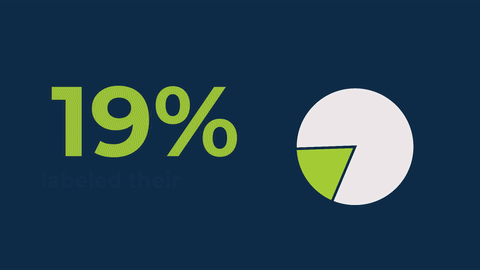Confronting Weight Bias at Work
Security Management has partnered with SHRM to bring you relevant articles on key workplace topics and strategies.
When confronting weight-based bias and harassment in the workplace, there’s no shortage of personal testimonies. Take, for example, Anna Burns.
Growing up, Burns felt compelled to excel at school to “combat stereotypes around anti-fatness,” as she says, including assumptions about intelligence and athleticism.
The stereotyping continued as an adult. Once, her chief people officer openly commented about not wanting to eat a cupcake because she was going to the beach that weekend, “implying that if she ate the cupcake, she would look fat, like me,” Burns says. After it was explained to the manager that what she said had caused Burns harm, the individual did not feel the need to express remorse or take accountability.
“I’ve experienced weight discrimination across my lifetime, throughout different years, cities, and industries,” says Burns, a manager for the national diversity, equity and inclusion team at KPMG in Stamford, Connecticut. “Because it’s so accepted and ingrained in our culture, anti-fat bias is the norm, and in my experience, no time, place, or space is immune from it entirely.”
Burns isn’t alone.
More than 40 percent of U.S. adults report experiencing weight-related stigma at some point in their lives. In the workplace, this can take the form of teasing, taunting, and microaggressions. Research has found that as obesity rates have risen in the U.S., so too has weight discrimination. With nearly one in three U.S. adults classified as overweight, and more than two in five meeting the clinical definition of obesity, it follows that a significant number of people in today’s workforce are likely to face weight-based workplace discrimination, potentially harming their job opportunities and career advancement.
According to recent SHRM research on the state of weight discrimination in the workplace, 72 percent of U.S. employees who have experienced unfair treatment at work due to their weight say it has made them feel like quitting their jobs, and 11 percent of HR professionals say an applicant’s weight has played a role in decisions their organizations have made during the job application process.
Because it’s so accepted and ingrained in our culture, anti-fat bias is the norm, and in my experience, no time, place, or space is immune from it entirely.
“Weight discrimination in employment has been documented for several decades, so this is not a new problem,” explains Rebecca Puhl, a professor at the University of Connecticut and deputy director of the university’s Rudd Center for Food Policy and Health. Puhl has conducted research on weight-based discrimination for more than 20 years, and she has published more than 180 studies on the topic.
“[Weight discrimination] can be present in different ways in the workplace, including unfair hiring practices, such as refusing to hire qualified job applicants because of their body size; fewer promotions; stigma or stereotypes from coworkers and supervisors; and wrongful job termination,” Puhl says. She notes that such discrimination can also be manifested in more subtle, difficult-to-prove ways at work, such as assigning office chairs that cannot accommodate employees with larger bodies or failing to provide accessible bathroom stalls.
Research shows that pay disparity is another challenge that larger workers face—but only if they are female. Just a 10 percent increase in body mass can result in a 6 percent reduction in salary for women, according to research cited by NPR. Conversely, the report showed that overweight men don’t seem to face a similar weight bias; in some cases, white males seen as overweight actually earn more.
When a woman “becomes overweight,” she is less likely to land a public-facing role in a better-paying, white-collar job, according to research by Vanderbilt University. Women who are considered medically obese or morbidly obese are more likely to work in low-paying, labor-intensive roles in industries such as home health, food preparation and childcare.
Discrimination at Work
Sean McLean’s experience of weight discrimination in the workplace began with a jacket.
In 2018, McLean was a college student and worked as a stocker for a grocery store in Boston. Company policy required each employee to wear a store-themed jacket while on the clock. However, none of the jackets were big enough to accommodate McLean’s size.
He tried working without the jacket, but his managers told him he would be sent home if it happened again. They sternly reminded him that employees must present themselves “in a certain way” in front of customers.
McLean acquiesced to wearing the biggest size available, despite his discomfort. For weeks, he asked managers if they had ordered a bigger size for him. They assured him that they planned to purchase a larger jacket. They never did.
“I was finally told that they just didn’t order that size because it would have to be a special order,” McLean says. “I got the feeling that my managers never really cared about my comfort. I felt like I lost my individuality working there, as if I didn’t matter.”
Weight discrimination can be so ingrained in workplace culture that it can even supersede rank. Despite his managerial status, Ryan, a former content manager in Orlando, Florida, who requested anonymity for this story, was openly taunted by his coworkers about his body size for years. He says his size made his direct reports not take him as seriously. They would consistently undermine him, make snide remarks about his appearance, and take extended breaks throughout the workday.
Ryan noted that employees didn’t treat managers who were smaller in size the way they treated him.
“Employees whom I managed would joke around all the time about my weight,” Ryan says. “I just rolled with the punches. But some days it was tough to hear. I’m a confident person, but when people talk about how big you are all the time, it gets to you. That’s textbook weight discrimination. Many obese people like me suffer in silence.”
The Negative Impact of Weight Stigma
SHRM research found that obese employees are more likely to be perceived as lazy (27 percent), unmotivated (23 percent), and unprofessional (17 percent), while average-weight employees are more likely to be perceived as high-performing (35 percent), hard-working (32 percent), and motivated (31 percent).
McLean says his early experiences in the workplace contributed to a negative self-image. “I think at that time, I felt I deserved this to some degree, as if it was my fault for being the size I was, and that my employer, or anyone else, shouldn’t have to cater to me because I’m overweight,” he says. “It made me embarrassed to look how I did, almost uncomfortable in my own skin.”
It’s common for people with bigger bodies to be blamed for their weight. A widespread misperception is that stigmatization is a justifiable way to motivate obese individuals to lose weight. But multiple studies demonstrate that weight stigma makes people more susceptible to anxiety, depression, low self-esteem, and other mental health challenges that contribute to poor physical health.
“The unfortunate truth is that ‘fatphobia’ is deeply ingrained in our culture,” says Ally Duvall, a body image program manager at San Diego-based Equip Health, which provides virtual treatments for eating disorders. People who experience weight discrimination are also at an increased risk of developing a negative body image, worsening their relationships with food, and resulting in disordered eating behaviors, Duvall explains.
“Even though it can feel uncomfortable and countercultural to challenge our societal fatphobia, weight-based discrimination is unacceptable, harmful, and has no business being in the workplace,” she says.
Researchers at Harvard University found that experiencing weight stigma can result in poor metabolic health and greater weight gain. Individuals who are overweight may cope with the stigma by increasing their alcohol and substance use and avoiding health care settings or social encounters.
Healthcare Implications
“You see weight discrimination in hiring and in determinations of promotions and salary,” says Patricia Nece, a retired federal employee who served as the chairperson of the board of directors with the Obesity Action Coalition, a nonprofit based in Tampa, Florida, that actively fights weight bias, stigma, and discrimination.
“There’s also a third area: the healthcare that is offered to people that want to do something about their weight through employee health plans,” Nece says. “It’s not the same as anyone with another type of disease.”
Nece encourages business leaders to review their health insurance policies to ensure they’re providing options for employees who wish to address their weight. She says healthcare plans should include anti-obesity medications, which employers have been increasingly considering in recent months. Nece also says these plans should include intensive behavioral therapy and nutritional counseling.
Obese employees are more likely to be perceived as lazy (27 percent), unmotivated (23 percent), and unprofessional (17 percent), SHRM research found.
Given the association of excess weight with specific health issues, there has been talk of extending to overweight and obese individuals the protections afforded under the Americans with Disabilities Act (ADA).
A disability under the ADA is a condition that substantially limits a person’s ability to perform one or more major life activities. Under the ADA and most state laws, obesity is not typically considered a disability. However, weight can be associated with conditions that do qualify as a disability or impairment, says Joseph Schmitt, an attorney with Nilan Johnson Lewis in Minneapolis.
Schmitt says weight has been mentioned as an actual or perceived disability under the ADA for many years. “That said,” he adds, “most plaintiffs’ firms and government agencies like the [U.S. Equal Employment Opportunity Commission] have not previously made it a point of emphasis.
“This underlines a crucial concept under the ADA: the importance of conducting a case-by-case analysis of whether the particular employee’s specific condition constitutes a disability,” Schmitt explains. “Employers must address these issues on an individualized basis and refrain from cookie-cutter treatments.”
Erin Dougherty Foley, an attorney with Seyfarth in Chicago, says health issues that cause or contribute to obesity could be considered a protected health condition under the Family and Medical Leave Act or the ADA. “Employers need to tread carefully,” she says. “All employers need to engage in the interactive process with employees who suggest they may need some type of an accommodation.”
Proactive Steps
To further combat bias and stigma associated with weight, Duvall suggests company leaders:
- Implement no-tolerance policies that prohibit weight discrimination.
- Train hiring managers to recognize weight-related biases during the selection process so candidates are fairly evaluated.
- Remove weight-loss-based wellness programs, which can lead to unhealthy weight-loss habits.
- Communicate the implications of “diet talk” in the break room.
- Ensure there is adequate seating and space to accommodate people with larger body sizes.
Employers that proactively address weight-based discrimination in the workplace and adopt a no-tolerance policy toward it can make it easier for their employees of all sizes to take advantage of development opportunities and succeed in their careers, uninhibited by the fallout of harassment and discrimination.
Employee education is a good place to begin. Nece, who has been obese since childhood, says, “Most people have no idea about the many challenges larger-bodied people face in every phase of our lives.” Shining a light on that is a solid start.
Matt Gonzales is an online writer/editor for SHRM who focuses on inclusion, equity, and diversity.
© 2024 SHRM. This article is reprinted from SHRM.org with permission from SHRM. All rights reserved.













